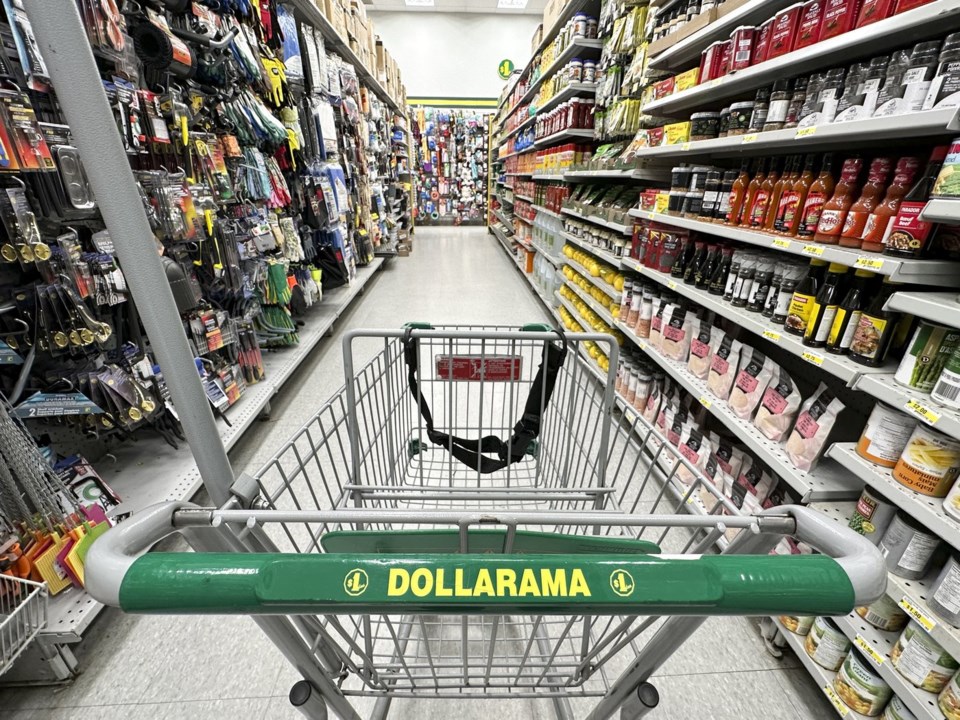Canadian consumers are proving to be a headscratcher for Dollarama Inc.
The discount chain's CEO said Wednesday that consumer behaviour continued to be unpredictable in his company's second quarter and he expects that trend to continue into the back half of the year.
"At some moments, it seems resilient, at others it seems fragile, so it's really hard at this point to draw any trends on the health of the Canadian consumer," Neil Rossy told analysts on a conference call.
His remarks come as tariff tensions are still flaring between Canada and the U.S., putting pressure on companies that thrive on cross-border manufacturing and sales. Some are coping with the situation by hiking prices while others are suspending sales from customers south of the border.
Meanwhile, the customer response is much more "inconsistent," Rossy said. Lately, some shoppers have been bucking the economic headwinds with strong purchasing patterns, while others are being cautious.
That mix has meant Dollarama has seen little sales growth in some categories.
"For example, if we look at our seasonal assortment, I mean, summer is not over, but the performance was essentially flat," Rossy said.
However, lack of growth in the seasonal category did not put a damper on Dollarama's second-quarter profit of $321.5 million, which was up from $285.9 million a year earlier.
The retailer said Wednesday that its profit amounted to $1.16 per diluted share for the 13-week period ended Aug. 3, up from $1.02 per diluted share a year earlier.
Despite the rise, Dollarama's share price fell by about three per cent to $185.90 in mid-morning trading on the TSX.
Sales for the quarter totalled $1.72 billion, up from $1.56 billion in the same period last year.
The increase was primarily driven by growth in the total number of stores over the past 12 months, to 2,060 earlier this month from 1,583 a year ago.
Rossy's goal is to open 70 to 80 net new stores this fiscal year, which he said is "exceptionally higher" than in previous years.
The number he's opened so far pushed up several metrics. Comparable store sales for the quarter increased 4.9 per cent, including a 3.9 per cent increase in the number of transactions and a 0.9 per cent increase in average transaction size.
Dollarama spent much of the quarter consumed by the tariff discussion Rossy had expected to be "relatively short lived, like we were hoping two years or less."
It's prompted thoughts about looking to other countries for supplies but importing goods from anywhere other than the U.S. or Canada is a three-to-six-month project and not desirable for every item Dollarama stocks.
"National brands can't be replaced with private label imports. It's just not the nature of those products," Rossy said. "So when you're talking about Pepsi and Frito-Lay and Nestlé and Hershey, you know that it is what it is."
Items made from plastic moulds are a different story. Dollarama has transferred production of them to other countries, namely Canada, because of tariffs.
Other than Canada-U.S. trade challenges, international expansion was a focus in the quarter. Dollarama completed its acquisition of Australian discount retailer the Reject Shop Ltd. and opened Dollarcity's first store in Mexico.
Dollarama will spend the next few years deploying its business model at the Reject Shop. It plans to phase in Dollarama products at the new acquisition through the end of fiscal 2027 and simplify its price points while lowering the current ceiling.
Reject Shop stores will also be converted to new layouts Rossy said are more "convenient and consistent."
His long-term goal is to revitalize the business and have 700 stores under the banner in Australia by 2034.The brand currently has 395.
"There's going to be ups and downs," Rossy acknowledged. "But I'm sure as a business we will only get better as time goes on."
This report by The Canadian Press was first published Aug. 27, 2025.
Companies in this story: (TSX:DOL)
Tara Deschamps, The Canadian Press



